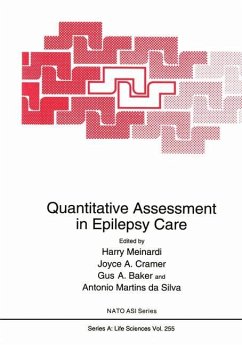Advances in epilepsy in recent decades have allowed for improved algorithms for diagnosis and a common understanding of terminology with the development of the International Classifications of Seizures and the Epilepsies. Nevertheless, no common system exists for the estimation of epilepsy severity or its impact on quality of life. Therefore, epileptologists lack the ability to make quantitative assessments of individual patients for comparison of care or for meta-analyses in clinical trials. This book on the Quantitative Assessment of Epilepsy Care approaches this omission by addressing the potential application of clinimetrics within the framework of epilepsy treatment. Clinimetrics is a fast growing discipline concerned with the quantification of clinical symptoms with respect to decision making relating to diagnosis, treatment, and prognosis. These methods allow for the development and validation of clinical scoring systems. For example, the Glasgow Coma Scale is widely used.As a chronic disorder, epilepsy would benefit from clinimetric methodology to create uniformity and to allow for comparisons among evaluations. In addition, epileptologists have not yet developed assessments of health related quality of life to define the overall condition of the chronic epilepsy patient and various therapeutic endpoints. While clini metric tools are essential for research, they will also be useful in clinical practice for the care of individual patients by documenting status and changes over time. This treatise will provide critical analyses of whether existing rating scales and techniques are valid to use, and which types of scales and techniques require further development.
Bitte wählen Sie Ihr Anliegen aus.
Rechnungen
Retourenschein anfordern
Bestellstatus
Storno








